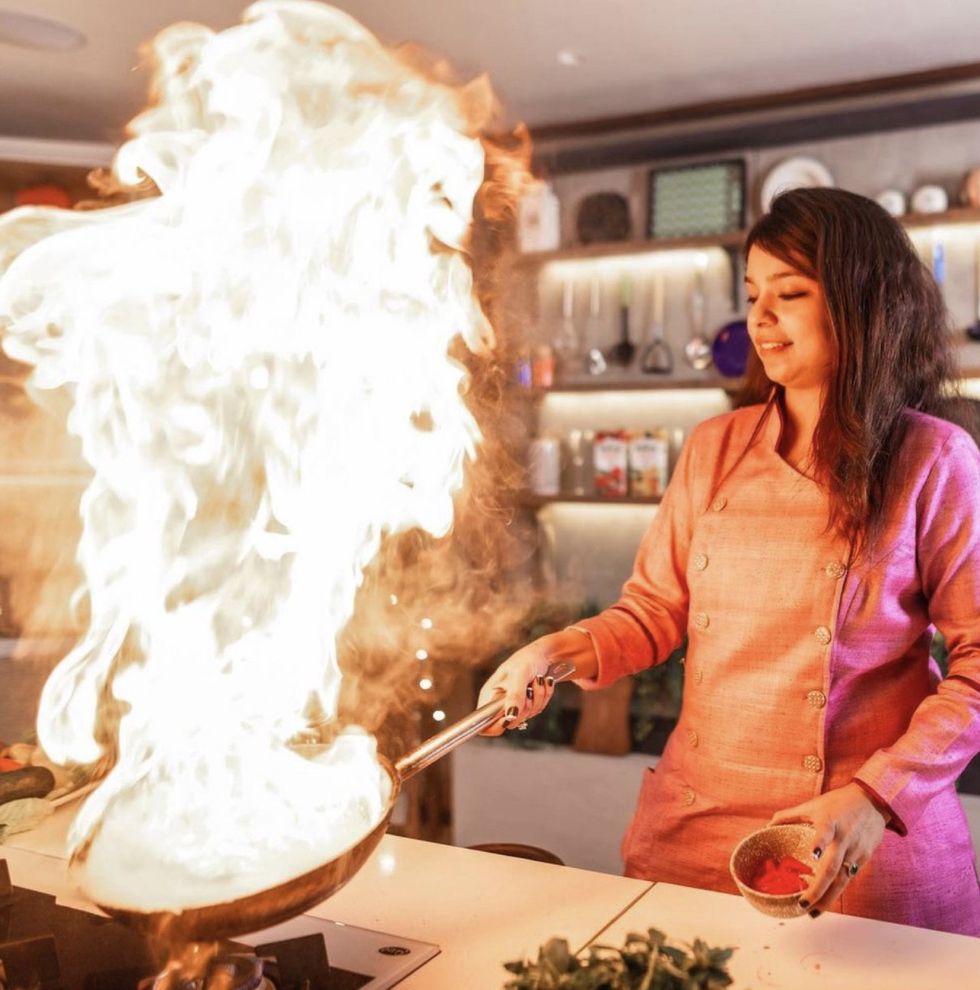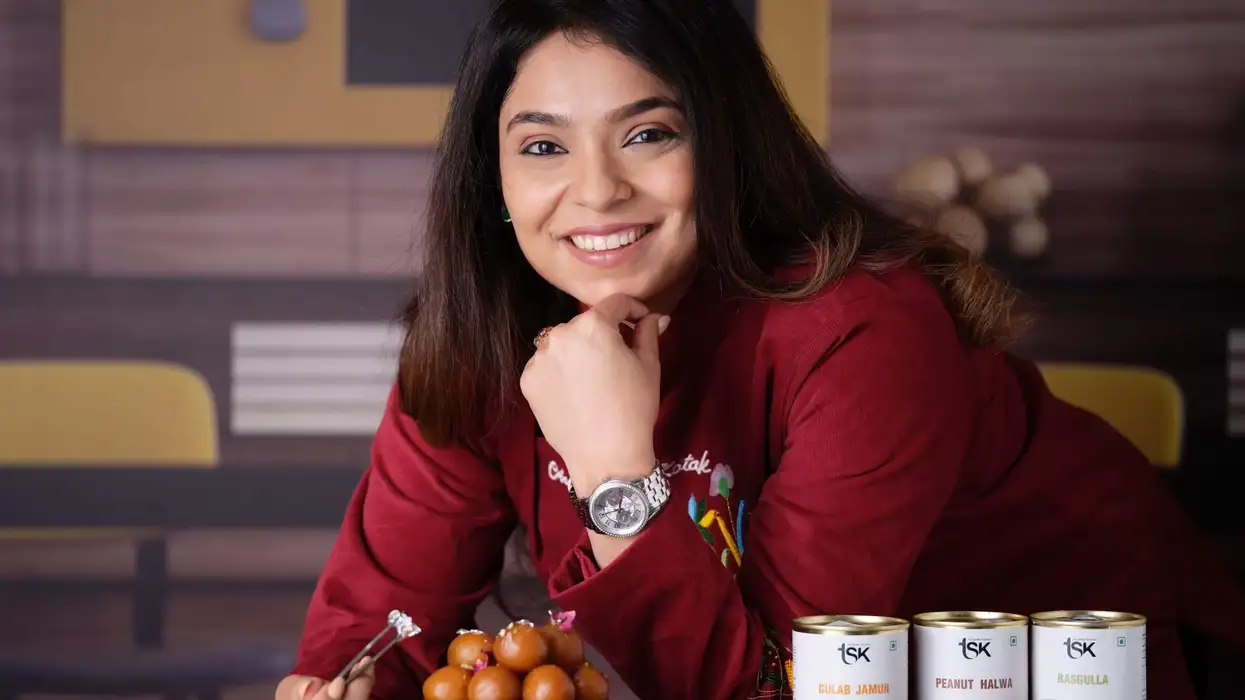SEEING her mother and grandmothers constantly trying new recipes in the kitchen as a youngster, first connect Aanal Kotak to cooking.
Growing up with these culinary queens constantly trying new dishes drove her towards becoming a celebrity chef, TV personality and hotelier.
The Gujarat-based entrepreneur owns renowned restaurants such as South Ak , The Baking Couture, and The Secret Kitchen in India and Australia. She has also written the captivating book Secrets of a Professional Kitchen and appeared on Master chef India.
Eastern Eye caught up with the food trailblazer to speak about her culinary journey and future plans, including the use of AI.She also gave top cooking and dinner party tips. What has been your most memorable moment?
The most memorable moment was the opening of our first Secret Kitchen restaurant in Vadodara seven years ago. We got kids from the rural area for the opening and served them first before it was open for the public. All the restaurants have been opened like this. Seeing such happiness on the kid’s faces is the ultimate happiness. These under privileged kids are welcomed every time, including at our luxury fine dining restaurants, and served good food. I cherish these moments.
Which of your ventures has been closest to your heart?
The Secret Kitchen and Akshada are the two brands closest to my heart. Akshada is very authentic and historic Gujarati cuisine, with recipes from my mom, dadi and nani. It’s very much how they historically made dishes when living in the villages. Those recipes have that home cooked, traditional method, which is being lost today because lots of fusion has happened.

Having that authenticity is very close to my heart. Tell us about The Secret Kitchen restaurant brand?
Secret Kitchen is all about modern Indian cuisine. It is not typical north Indian cuisine. We have dishes including from Gujarat, which combine tradition with a modern way of serving. For example, we have samosas from a small town in Kutch, which are served to a global clientele, including in Australia, in a contemporary way. It’s a great meeting of the old and new worlds. We will be opening in Canada soon.
Tell us about some of The Secret Kitchen recipes.
In The Secret Kitchen, we change our menu every eight months. The recipes are based on finding hidden gems, whilst travelling across India. They are served in a very modernised way. We have a much loved stuffed white pasta dish, which I created on my TV show, which was revamped for The Secret Kitchen. There are many such dishes, where I have taken inspiration from different parts of India.
What top cookery tip would you give?
When you are happy in the kitchen it makes a lot of difference. A simple dish cooked when in a good mood will always taste better than something complex made in a bad mood. So, for me, a pinch of love, creativity, dedication, and passion into cooking is the biggest secret ingredient, which takes all your dishes to a whole new level.
How important is it to learn about spices in cooking?
A good knowledge about spices when learning about cooking is first and foremost. If you know about spices well enough, and understand their various combinations and uses, then they become the biggest strength and secret ingredient to taking your dishes to the next level. I truly believe spices are the hero of any successful culinary journey.
What is the best advice you can offer for organising a good dinner party?
A good dinner party should have variety, which will enable guests to create their own dishes. So, for example having rice with a choice of different gravies, veggies and toppings enables guests to create something they will like. A small variety can make a big difference. You can add a little fun with barbecue or desert stations. Find out ahead of time what dishes guests like and if they have any allergies.
Who is your own culinary hero?
My mother and grandmothers will always be my culinary heroes. Seeing them cooking every day and learning from them has shaped me. Even today, I ask them for advice if I am stuck with a recipe or the creation of any product at my factory. Their knowledge helps me develop new products and understand the technique behind, making it perfectly. They are my biggest guiding lights.
If you could master something new in cooking, what would it be?
With cooking, there will always be something new to learn. Every day, there are new things and ingredients coming in the market. You need to adapt to those new techniques and technology. So, it’s a constant learning process. These days AI is helping the cooking and restaurant industry evolve.
Tell us more about that.
A lot of new tools, technology and text is coming up for professionals. I’m very keen right now to gather that knowledge and merge AI into routine operations of being a chef. I’m enjoying trying to master that optimised use of AI as a tool into my kitchen.
What are your future plans?
There are many ventures coming up, including a new dine in restaurant and two new brands. A luxury dining restaurant above The Secret Kitchen is something I’m working on. So, I’m coming up with a lot of new things and constantly evolving.
What inspires you?
Every day, I am seeing a growth within myself in terms of knowledge and growth. Both personally and at my company level. This inspires me to work harder, aim higher and achieve more goals. So, my own growth is a constant source of inspiration.




